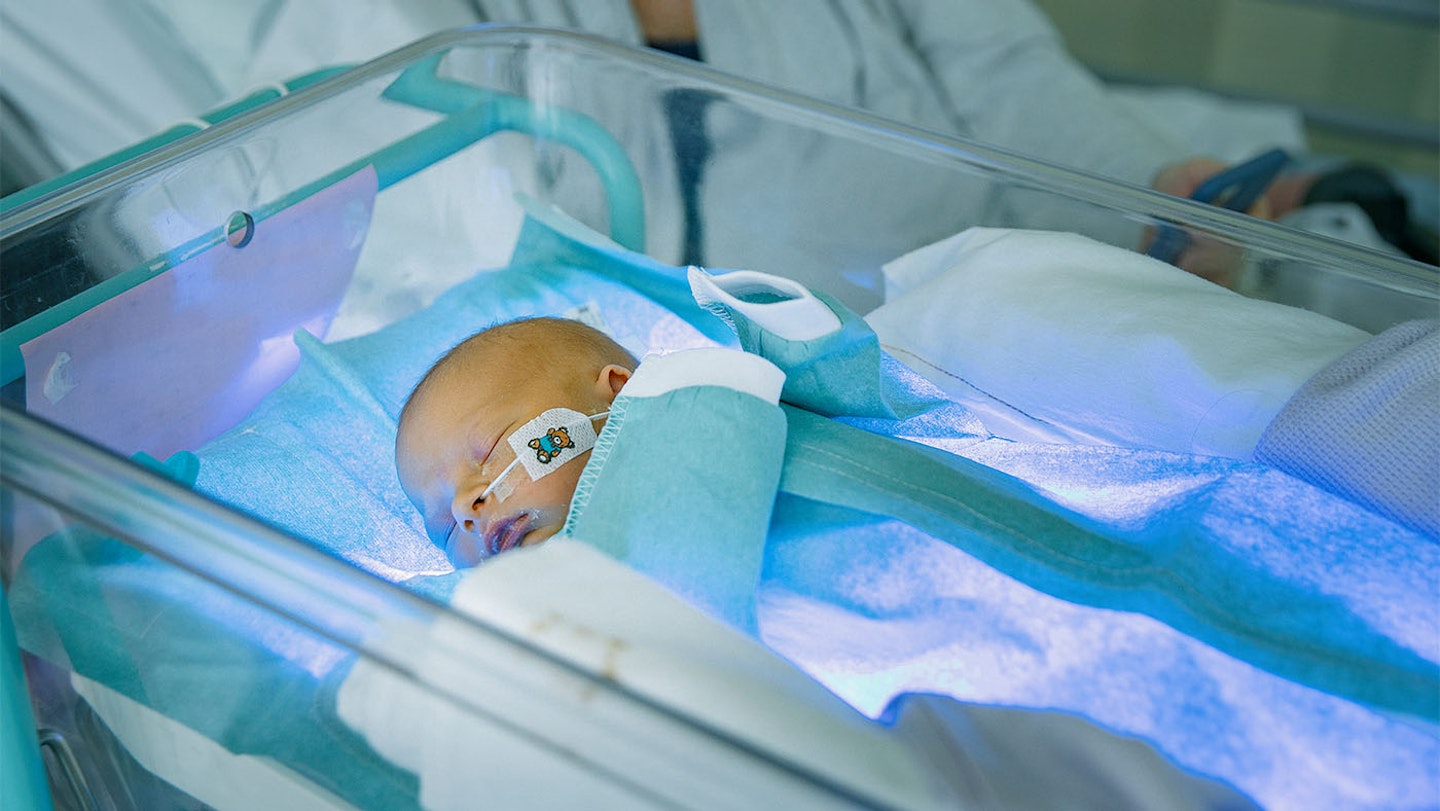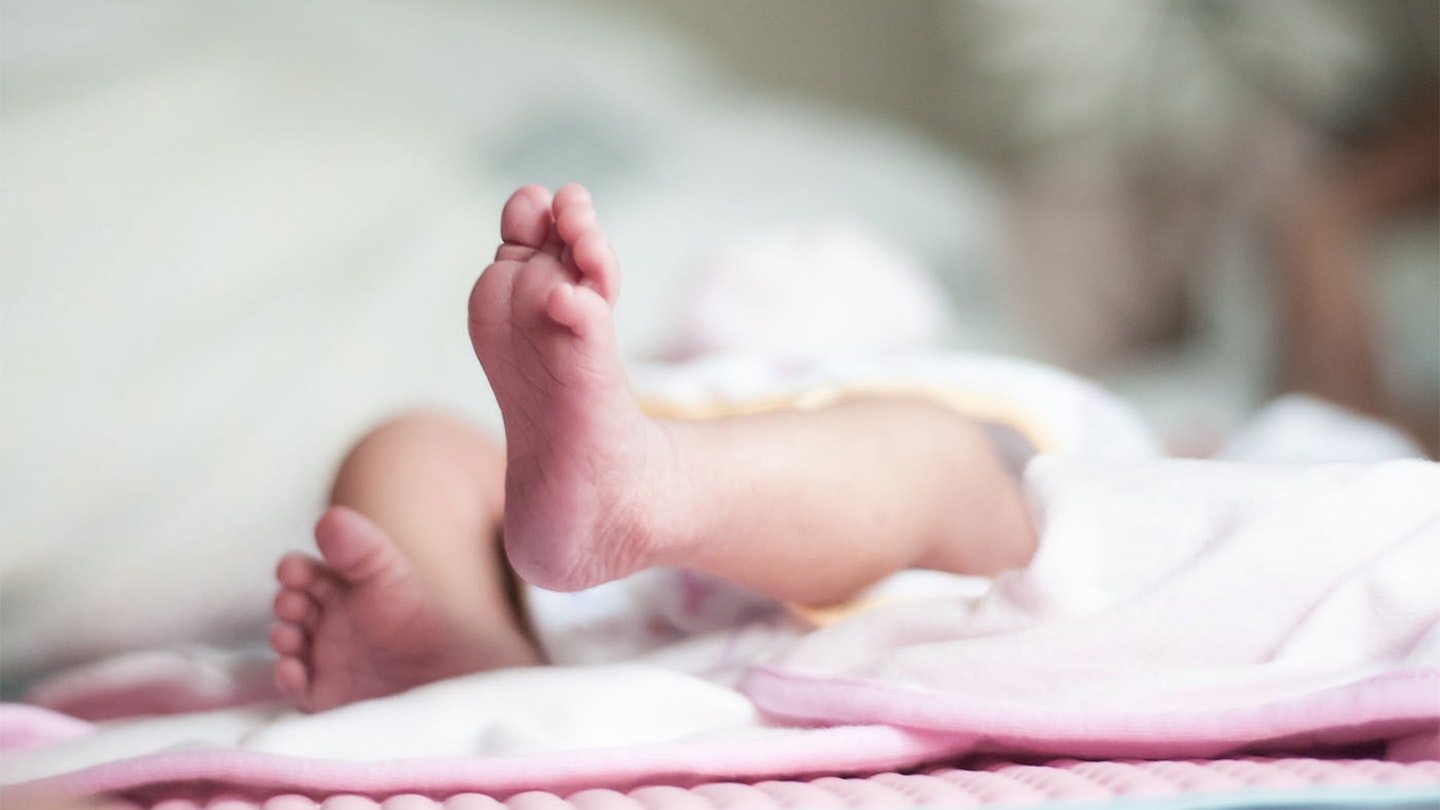Yellowish skin in newborns can be a sign that your little one has neonatal jaundice. It doesn’t look pretty, but jaundice in newborns is really common and rarely needs medical assistance to heal itself.
If you're wondering what causes jaundice in babies we've put together everything you need to know, from how long it lasts and why they get it, to why it makes your baby’s skin yellow and what you need to know about newborn jaundice treatment.
What is neonatal jaundice in newborns?
Jaundice is usually harmless in babies and occurs because your baby’s blood has an excess of bilirubin – a yellow substance produced when red blood cells are broken down. This is what can make your little one's skin colour look a bit off. The colour isn't permanent though, and in most cases it should clear up in a week or so.
What are the signs and symptoms of jaundice in infants?
It's not difficult to spot signs of jaundice, with the most recognisable being a yellow tinge to your baby’s skin. However, for babies with brown or black skin, it can be trickier to see the change in skin colour. Keep in mind that the following may vary depending on what has caused the jaundice and how serious it is.
Signs of jaundice to look out for:
-
Yellowish skin-tone and scalp – this is where you'll notice it first
-
Eyes that seem yellowish – particularly the white of their eyes
-
Look for yellowing inside of their mouth
-
Yellowing on darker skin is easier to see on the soles of their feet
-
Another place to look for yellowing on darker skin is the palms of their hands
-
Drowsiness that seems out of the ordinary – is it difficult to wake them up?
-
Babies struggling to gain weight or trouble feeding
What colour is jaundice poop?
Another unusual sign to look out for is pale-coloured poo and dark yellow urine. These are both indicators that your baby has neonatal jaundice and that it might be slightly more serious than usual. When your baby has physiologic jaundice their urine is usually light yellow and the stool colour often resembles the colour of mustard or darker, indicating the level of indirect bilirubin is higher.
Doctors will be concerned when the bilirubin levels rise higher and could start treatment to prevent the bilirubin from getting to a certain level. In this case, a neonatal specialist or blood specialist may be called in to help care for the newborn.
Why do babies get jaundice?

Jaundice is really common in newborns with about two thirds of full-term babies developing it in their second or third day.
Your newborn has a high number of red blood cells in their blood, but their liver isn't well-developed enough yet to handle the breaking down and elimination process. This leads to too much bilirubin building up in the blood – also known as hyperbilirubinaemia.
‘If it doesn’t get passed out of the body as faeces, it will cause the skin and the whites of a baby’s eyes to turn a yellow colour,’ explains Professor Mitch Blair, from the Royal College of Paediatrics and Child Health.
According to the NHS breastfeeding your baby can actually increase their chances of developing jaundice. You shouldn't let this stop you from breastfeeding your baby of course, as the benefits definitely outweigh any potential risks. They may just need extra fluids and more frequent feeds.
Happily, increased feedings can reduce the risk of jaundice too, according to cdc.gov. This is because when jaundice occurs in the first week it is due to newborn not receiving optimal amounts of milk. This leads to rising bilirubin levels, and the delayed passing of meconium – your baby's first stool. The stool contains large amounts of bilirubin which can be transferred into their circulation. So the more you can breastfeed, the better.
Why are breastfed babies more likely to develop jaundice?
It's not really clear why breastfed babies are more likely to develop jaundice. One theory is that at first only small amounts of milk is produced, called colostrum, and it's thought that this can affect how the liver functions. Alternatively, the fact that the milk contains certain enzymes could also be the cause of jaundice.
Other reasons for jaundice developing
Babies who are born prematurely or experience bruising during birth may be more prone to developing jaundice. This is also due to the underdeveloped liver in the case or premature babies, and bruises can result in old blood collecting under the skin, and the need for increased bilirubin as described previously
Underlying health conditions can lead to jaundice in babies
Other health issues could be the cause of jaundice in babies, which is referred to as 'pathological jaundice'.
Some examples include:
-
an underactive thyroid gland
-
mum and baby having different blood groups
-
rhesus disease
-
a urinary tract infection
-
Crigler-Najjar syndrome
-
a blockage or problem in the bile ducts and gallbladder
-
an inherited enzyme deficiency
You should let your health care provider know of any family history of G6PD, which could make your baby more likely to inherit an enzyme deficiency, as they will want to monitor your baby more closely.
How long will jaundice last in newborns?
Fortunately, it doesn’t last long – it should go in about 14 days. But it can last for up to three weeks in premature and breastfed babies.
‘Only one in 10 babies will still have jaundice when they are one month old,’ says Professor Blair.
How to treat jaundice in newborns
Unless severe, jaundice is one of those baby conditions that will clear up by itself. You can nudge the process along by making sure you feed your bub often, which will help the bilirubin come out in his nappy.
‘If you are breastfeeding, you should continue to breastfeed your baby regularly, waking them up for feeds if necessary,’ advises Professor Blair.
Jaundice in babies and when to worry
If you're wondering if jaundice is serious in babies, you'll be relieved to know that it’s rare for your baby to need medical help. However, there are a few instances in which it’s best to see a doctor.
‘If the jaundice stays for over two weeks then it’s worth getting it checked out,’ says Professor Blair. ‘Also take your baby to the doctor if it didn’t start until seven days after your baby was born or if your baby’s faeces are chalky white in colour.’
More often than not jaundice is a completely ordinary baby illness – it’s all part of your little one adjusting to life outside the womb and learning to look after himself.
Just keep an eye on him and don’t let it stop you from enjoying those precious first weeks.
Do babies have to be hospitalised for jaundice?
Traditionally, families have had to take their babies to hospital for treatment, however, according to the BBC newborn babies cared for by an NHS trust can now receive treatment for jaundice in their own homes thanks to £30,000 worth of funding from Royal Surrey Charity that was secured through the trust’s Bid for Better 2023 initiative.
In the very small number of cases that Jaundice develops and must be treated, the standard treatment is exposure to light waves, known as phototherapy. "Treating jaundice in the home is simple with the right equipment" says Ms Macloeod a consultant neonatal nurse at Royal Surrey, and the BBC states that a trained healthcare professional from the Royal Surrey NHS Foundation Trust will visit homes equipped with portable phototherapy devices to reduce stress and disruption of the bonding period.
Lorna White is the Senior Digital Writer for Mother&Baby. After running the Yours magazine website, specialising in content about caring for kids and grandchildren, Lorna brought her expertise to Mother&Baby in 2020. She has a keen interest in a range of topics from potty training and nutrition to baby names and early development and has a wide range of experienced medical experts and professionals at her fingertips. In her spare time, she enjoys spending time with her two young sisters, dog walking and enjoying the outdoors with her family.
